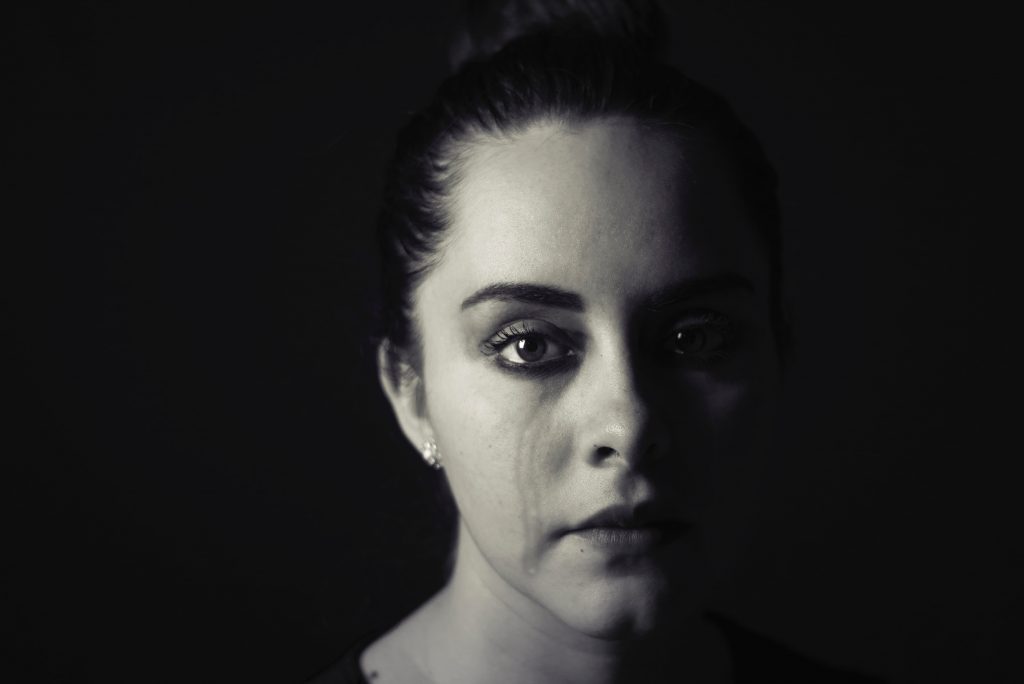13 Things about Depression that you need to know.

Hello Psych2Goers! Depression is something which we hear a lot about these days. It is more than likely that we know somebody who has had it or we may have experienced it ourselves at some point in our lives. But how much do we actually know about depression?
It is important to note that this article is purely for educational and interest purposes and is not to be used to self-diagnose depression. If you or somebody you know suspects that they may be suffering with depression, get in touch with your doctor or mental health service to discuss your symptoms further.
Remember, depression is a common mental health condition and affects people in different ways. You are not alone and there is support that you can access if you feel like you need to talk to somebody.
So let’s get to it! Here are some facts about depression that you need to know.

Nobody is immune from depression.
Globally, more than 264 million people of all ages suffer from depression and it is estimated that 15% of the adult population will experience depression at some point in their lifetime. Depression can begin at any age and it can affect people of all races and all socioeconomic statuses. Research indicates that those in certain professions are at a higher risk for depression. For example, in a recent study, it was reported that 28% of lawyer and 29% of young doctors reported to suffer from depression. The rates of depression are also higher among those who have a history of substance use.
More women are affected by depression than men.
Studies have shown that 8.7% of women and 5.3% of men have depression. Men are less likely to report experiencing depression due to fears that they will be stigmatised or seen as being weak. According to Brooklyn, N.Y.-based therapist, Justin Lioi, LCSW, who specialises in men’s counselling, “Depression can often be masked with anger, or irritability”.
Untreated Depression is the most common cause of suicide.
According to the National Alliance on Mental Illness, 45% of those who commit suicide are suffering from some sort of mental illness including depression. Having a proper diagnosis and treatment for depression is very importing in preventing suicides. If you or a loved one is experiencing suicidal thoughts, call your local suicide prevention number or helpline.
Nearly 50% of all people diagnosed with depression are also diagnosed with an anxiety disorder.
It comes as no surprise that depression goes hand in hand with other mental health conditions as depression is experienced as anxiety 65% of the time. From personal experience, when I was diagnosed with mild depression, I also received a diagnosis of Generalised Anxiety Disorder and traits of Borderline Bipolar. This will not be the case for everybody so make sure that you discuss your symptoms with a doctor in order to get the correct diagnosis.
There are many things which can cause depression.
The causes of depression aren’t completely understood, but it is believed that the best explanation for it is that it is probably caused a combination of factors. Underlying genetic traits passed down from family members and certain environmental factors that can act as triggers.
People with depression can’t just snap out of it.
The biggest misconception about being depressed is that you can just ‘snap out of it’. This can be frustrating to hear, and it shows that the person you’re speaking to about your depression perhaps doesn’t fully understand how you’re feeling. Depression feels like a constant battle and it can be exhausting.
Depression and being sad are not the same thing.
Depression and sadness mean two different things. Sadness is a common emotion which will lift after a few hours or days. However, depression is a persistent sadness which it can last for weeks, months or even years.
Depression is a real illness which affects brain chemistry.
Depression has been linked to an imbalance in the neurotransmitters that impact mood regulation. This includes dopamine (which regulates emotion and memory), serotonin (the ‘feel good’ chemical that regulates mood and sense of wellbeing) and norepinephrine (which impacts your heart rate and blood pressure during ‘fight or flight’ situations) The theory is that having too much or too little of these neurotransmitters can cause (or contribute to) depression. Researchers are continuing to learn more about what causes these imbalances as well as other neurotransmitters.
There are different types of depression which people can experience.
- Major depressive disorder with seasonal patterns (Seasonal Affective Disorder or SAD) is triggered by disruptions in the circadian rhythm of the body. A change in seasons can also disrupt sleep, which can contribute to a depressed mood.
- Any flux in the production or function of hormones including pregnancy, menstruation, menopause, or thyroid issues could all contribute to depression.
- The loss of a loved one, trauma and abuse, chronic stress, and big life changes (such as a divorce or losing a job) can trigger depression.
Depression is treatable.
There are so many different and effective treatment options and therapeutic approaches for depression including Cognitive Behavioural Therapy, Interpersonal therapy, Social Skills Therapy, Psychodynamic Therapy, Supportive Counselling and Behavioural Activation. There are new treatments being developed all the time that are proving to be effective in cases where other treatments have not been successful. Contact your doctor to find out more about how some of these treatment options could help you.
Depression isn’t a choice.
People don’t choose to be depressed, but they do make a choice about how to deal with it. You can choose to do nothing, however denying that you have a problem will only make you feel worse. You are not weak because of depression; you are stronger than you think.
Chronic pain can be another symptom of depression.
Being in continual discomfort or pain can cause you to become depressed which can become a vicious cycle.
Depression distorts your thinking.
When you are depressed, your mind can play tricks on you. You may feel paranoid, anxious or have thoughts of harming yourself. If you have thoughts of suicide, please call someone immediately. Don’t let a temporary glitch in your thinking cause you to harm yourself or another.

Depression can take on many disguises, but there are more diagnostic tools and better treatments available today than there ever have been before. Don’t forgot about your friends and family who love and care about you. If you or somebody you know suspects that they may have depression, please contact your local doctor to discuss your symptoms further.
There is also an educational article called ‘ 6 Signs of Smiling Depression’ which you may find interesting. This can be found on the Psych2Go website. If you have found this article useful, please leave a comment in box below. We are always welcome to feedback from our readers so that we can continue to make Psychology and Mental Health accessible for everybody.
Take care!
J
References:
Cho, J. (2016). ‘10 Things You Need To Know About Depression (Part I)’ Available at: https://www.forbes.com/sites/jeenacho/2016/04/27/10-things-you-need-to-know-about-depression-part-i/#5a210f9562cb [Accessed August 5th 2020]
Depression (2020) Available at: https://www.who.int/news-room/fact-sheets/detail/depression [Accessed August 5th, 2020]
Goldsmith, B. (2009). 10 Little Known Facts About Depression. Available at: https://www.psychologytoday.com/us/blog/emotional-fitness/200907/10-little-known-facts-about-depression [Accessed August 5th 2020]
Morin, A (2020). ‘How Many People Are Actually Affected by Depression Every Year?’ Available at: https://www.verywellmind.com/depression-statistics-everyone-should-know-4159056 [Accessed August 5th 2020]
Pajer, N. (2019) 10 Things People Get Wrong About Living With Depression. Available at: https://www.huffingtonpost.co.uk/entry/depression-myths_l_5c532250e4b0ca92c6de5679?guce_referrer=aHR0cHM6Ly9jb25zZW50LnlhaG9vLmNvbS8&guce_referrer_sig=AQAAAHG8zTUk2ySq5_INT9wg0NAVnmxWrZ-Yze85N_8OyfmbM5wWjigDc1GULDygVdcM8_DD7cRfVZwY7eplRJFQfM3nm4mNygl46ejV85Q7tkq9auFfTfhJcsqhq_D1LgtTjGZ179zjibLhADtHFUCi4X5wHrQZ3C5ZFvyVt7w1eCAt&guccounter=2 [Accessed August 5th 2020]
Schimelpfening, N. (2020). ‘7 Facts Everyone Should Know About Depression.’ Available at: https://www.verywellmind.com/depression-facts-you-should-know-1067617 [Accessed August 5th 2020]
‘10 Things People with Depression Want You to Know’ Available at: https://young.scot/get-informed/national/10-things-people-with-depression-want-you-to-know [Accessed August 5th 2020]



Responses